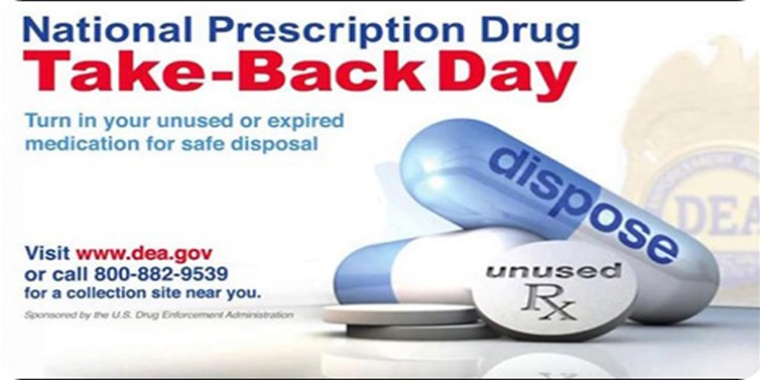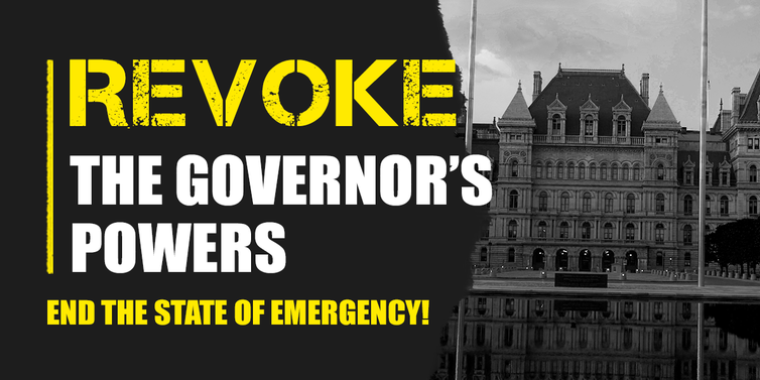
O’Mara: Saturday's 'National Prescription Drug Take Back Day' Important to Ongoing Fight Against Abuse, Addiction

Elmira, N.Y., October 25—State Senator Tom O’Mara (R,C,I-Big Flats), a member of the Senate Task Force on Heroin and Opioid Addiction, reminded area residents today that Saturday, October 28, 2017 is National Prescription Drug Take Back Day. Law enforcement agencies across the Southern Tier and Finger Lakes regions will operate drop-off centers to allow for the safe and responsible disposal of unused prescription drugs.
“It’s incredibly important that our local law enforcement leaders continue to participate in National Prescription Drug Take Back Day. Their ongoing leadership in this overall effort to combat prescription drug abuse makes all the difference,” said O’Mara, noting that the federal Drug Enforcement Administration (DEA) in partnership with local police agencies coordinates the annual event across the nation.
On Saturday law enforcement agencies throughout the Southern Tier and Finger Lakes regions have established drop-off centers to allow people to anonymously dispose of unwanted prescription drugs between 10:00 a.m. and 2:00 p.m.
O’Mara said that a full listing of local collection sites being offered throughout his legislative district covering Chemung, Schuyler, Steuben, Tompkins and Yates counties can be found on the DEA website HERE.
O’Mara also strongly praised the inclusion in this year’s state budget of more than $200 million in funding to continue enhancing and expanding the state’s heroin and opioid addiction prevention, treatment, recovery, and education services. He said the budget reflects input he and his Heroin Task Force colleagues have received at numerous local public forums since 2014, including in Elmira and Penn Yan. Earlier this year, O’Mara and Hornell Deputy Mayor John Buckley hosted a well-attended Town Hall on heroin and opioid addiction, where Hornell Police Chief Ted Murray, Trinity of Chemung CEO Ann Domingos and 24-year-old Marissa Haight, a recovering addict using her personal experience to raise awareness and help others find help, joined them.
Last year’s state budget included $1 million to maximize the availability of drug collection programs for communities statewide, including to local law enforcement agencies, for the purchase and distribution of tamper-proof drug collection boxes. The state Department of Environmental Conservation (DEC) has established and enhanced drug collection programs statewide. The program includes the purchase and distribution of tamper-proof drug collection boxes and other federally approved drug collection programs to help protect the environment from harmful substances and reduce the risk of addiction through the safe and responsible disposal of opioid pharmaceutical drugs.
“The abuse of prescription drugs is directly tied to and in many ways responsible for the burgeoning heroin epidemic. It’s incredibly important to do anything and everything we can to complement and support the efforts of our local law enforcement leaders to combat prescription drug abuse. These efforts include National Prescription Drug Take Back Day and other initiatives to encourage the collection and disposal of unused prescription drugs,” said O’Mara. “This year’s increased budget funding goes hand in hand with other funding the Senate has fought for over the past several years to enhance the state’s awareness and education, recovery and treatment services.”
The federal Centers for Disease Control has identified the abuse of prescription medicine as one of the nation’s fastest-growing drug problems with nearly 15,000 people dying every year of overdoses due to prescription painkillers. In 2010, 1 in 20 people in the United States over the age of 11 reported using prescription painkillers for nonmedical reasons in the past year. Moreover, an estimated 70 percent of people who abuse prescription painkillers obtained them from friends or relatives who originally received the medication from a prescription. The problem is of particular concern with respect to young adults and teens.



